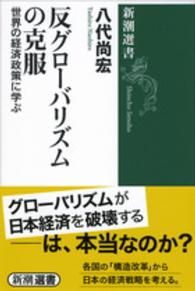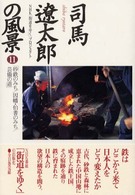Description
(Short description)
Gegenstand der Arbeit ist das Vergewaltigungsverbot im bewaffneten Konflikt. Anke Biehler behandelt die historische Entwicklung des Verbots im Hinblick auf dessen völkerrechtliche Bedeutung und Definition sowie im Hinblick auf das Problem der Durchsetzung des Verbots. Abschließend werden Überlegungen angestellt, ob das Vergewaltigungsverbot im bewaffneten Konflikt heute nicht nur als Völkergewohnheitsrecht, sondern auch als jus cogens anzusehen ist.
(Text)
Gegenstand der Arbeit ist das Vergewaltigungsverbot im bewaffneten Konflikt. Anke Biehler behandelt die historische Entwicklung des Verbots im Hinblick auf dessen völkerrechtliche Bedeutung und Definition sowie im Hinblick auf das Problem der Durchsetzung des Verbots. Dazu wird zunächst die historische Entwicklung des Vergewaltigungsverbots im bewaffneten Konflikt nachvollzogen. Anschließend wird untersucht, was es völker- und völkerstrafrechtlich im Detail umfasst und welche rechtlichen Möglichkeiten es zu seiner Durchsetzung gibt. Hierbei ist zwischen Durchsetzungsmöglichkeiten auf individual-strafrechtlicher Ebene und auf zwischenstaatlicher Ebene - etwa durch Staatenverantwortlichkeit - zu unterscheiden. Abschließend werden Überlegungen angestellt, ob das Vergewaltigungsverbot im bewaffneten Konflikt heute nicht nur als Völkergewohnheitsrecht, sondern auch als jus cogens anzusehen ist.
(Text)
»The Prohibition of Rape in Armed Conflict«
Rape in armed conflict is a phenomenon as old as war and armed conflict itself. Nevertheless, in many armed conflicts throughout the world rape is still a common, daily practice with devastating consequences for the victims and their societies. This book examines the prohibition of rape in armed conflict as it exists today and which conduct it covers exactly. To this end, the historic development of the prohibition of rape in armed conflict is examined before looking at its significance and definition in international and international criminal law. It is also analysed whether the prohibition of rape in armed conflict is part of customary international humanitarian law and whether it constitutes a peremptory norm of international law (jus cogens). Finally, the book looks on how the prohibition of rape is enforced today.»The Prohibition of Rape in Armed Conflict«
Rape in armed conflict is a phenomenon as old as war and armed conflict itself. Nevertheless, in many armed conflicts throughout the world rape is still a common, daily practice with devastating consequences for the victims and their societies. This book examines the prohibition of rape in armed conflict as it exists today and which conduct it covers exactly. To this end, the historic development of the prohibition of rape in armed conflict is examined before looking at its significance and definition in international and international criminal law. It is also analysed whether the prohibition of rape in armed conflict is part of customary international humanitarian law and whether it constitutes a peremptory norm of international law (jus cogens). Finally, the book looks on how the prohibition of rape is enforced today.
(Author portrait)
Anke Biehler ist Rechtsberaterin beim Internationalen Komitee vom Roten Kreuz. Nach dem Studium der Rechtswissenschaften in Konstanz und Genf und dem Referendariat im OLG Bezirk Stuttgart war sie am Max-Planck-Institut für ausländisches und internationales Strafrecht in Freiburg/Brsg. Referentin für das Sachgebiet Europa. Für das Internationale Komitee vom Roten Kreuz arbeitete sie als Delegierte und Rechtsberaterin auf den Philippinen, in der Demokratischen Republik Kongo, in Pakistan und am Hauptsitz in Genf.







